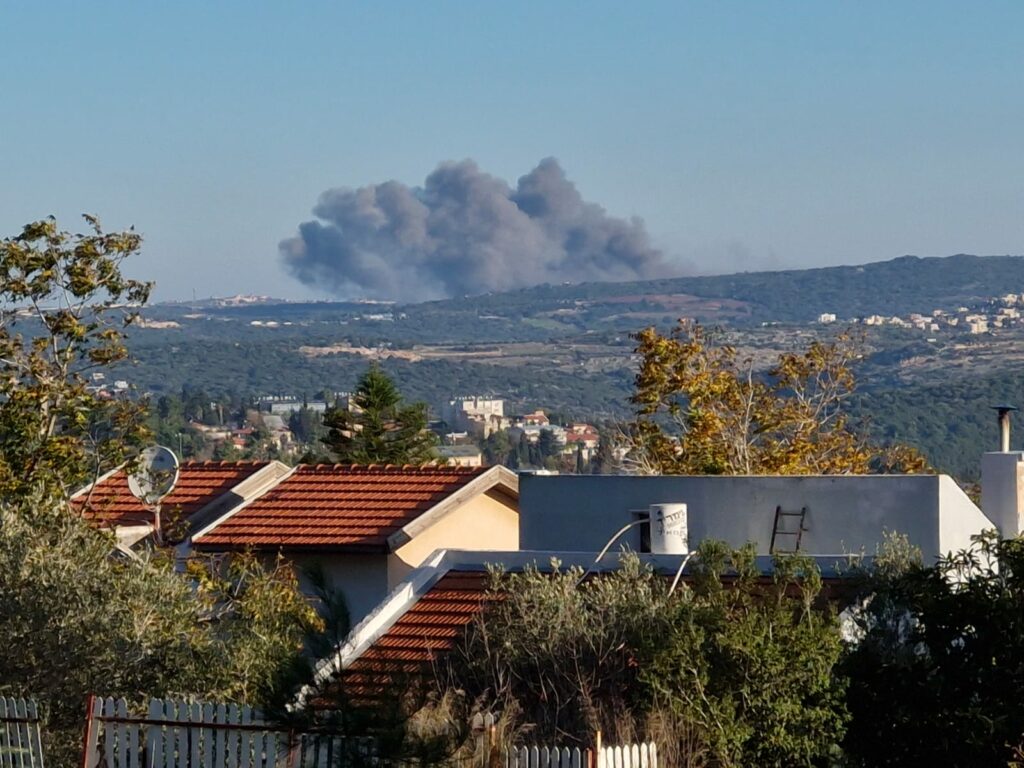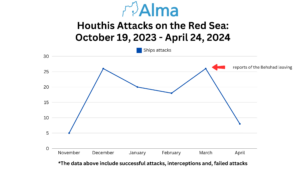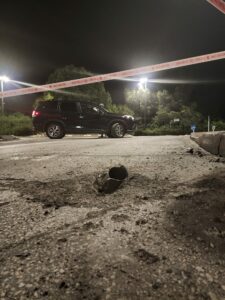As some 80,000 northern residents of Israel continue to be internally displaced due to ongoing Hezbollah attacks, including anti-tank guided missiles, suicide drones, mortars, and rockets, the focus this week is on a recent interview with Amos Hochstein, a key figure in the Biden administration as far as our region is concerned. He appeared on CBS’s “Face the Nation” on January 28.
Hochstein, a White House special envoy to the Middle East, expressed concern over the possibility of a new front opening in the North in a full-scale manner, beyond the ‘low-intensity conflict’ currently raging in the North.
He noted how, in October 2022, under Hochstein’s guidance, Israel and Lebanon, despite not having diplomatic relations, agreed on a maritime boundary. This accord, he claimed, symbolized a rare moment in which Lebanon, which has yet to recognize Israel, entered into an arrangement with it.
The envoy said that the real challenge lies in going beyond this maritime understanding and reaching a broader diplomatic initiative, encompassing a cessation of hostilities and ensuring security for civilians on both sides of the border.
Hochstein’s optimism, unfortunately, features a few glaring omissions.
He stated, for example, that “post-October 7, we also have to make sure that Israelis and Lebanese can live in their homes with security. And that is not just a ceasefire; it requires a more intricate piece of the negotiations to ensure that the Lebanese army is in that area and that there are more parameters of security for civilians. Once we do that, though, we do need to start looking at how we mark the border, an actual border, between the two countries so that we can have long-term security and peace in an area that’s seen so many rounds of conflict over the last several years.”
Firstly, he sees the Lebanese Armed Forces as part of the solution. This is a problem, given that the Lebanese Armed Forces have cooperated with Hezbollah and have not been part of the solution for the last 17 years, so why would this change now?
Secondly, Hochstein does not specify what is required of the Lebanese Armed Forces, which is to disarm Hezbollah of its weapons in south Lebanon. This is what will bring peace of mind to Israelis after October 7th.
He does not detail what the supervision mechanism for this disarmament will be or whether there will be a deadline for it.
Lastly, he is enthusiastic about the achievement on the maritime border but forgets that Israel conceded its position under the threats of war by Hezbollah and that there were no people involved in that agreement, only water and money from natural gas earning potential, unlike the land border disputes, which include the village of Ghajar, where people live, and the Shebaa Farms, which involve security and water.
As Hochstein prepares for his next visit to the region and his next attempt at shuttle diplomacy, the clock is ticking.
The region stands at a crossroads, and the path chosen will shape the lives not just of northern Israelis and southern Lebanese but also of millions in Israel, Lebanon, and beyond.
So far, no clear answers have emerged to these questions about the future of Hezbollah and its daily, systematic violation of UN Security Council 1701—a violation that casts a long shadow over the area’s future.






